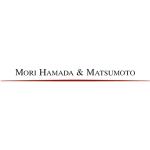Takeshi Mukawa and Win Naing, MHM Yangon
SECTION 1: Market overview
1.1 Please provide an overview of the project finance market in your jurisdiction.
Project financing is at a nascent stage in Myanmar, although it has been rapidly developing as Myanmar has opened up to foreign investment and updated its laws relating to foreign investment and financing.
The most active sectors are power and real estate. Recent high-profile projects include the Myingyan independent power producer (IPP), the Minbu power plant project in Magwe Region and the Landmark Project led by Mitsubishi Corporation and Serge Pun & Associates (see Question 2.1). Project finance in Myanmar has typically been led by debt financing from international finance institutions such as the International Finance Corporation (IFC) or Asian Development Bank (ADB), which have established precedents for international standard documentation in such transactions.
1.2 What is the composition of the market in terms of the types of active lending institutions and has this been evolving?
Project financing has primarily been led by institutions such as the IFC and ADB. This is because Myanmar has only recently opened up to foreign investment and reflects the relatively higher commercial and political risks of lending in Myanmar. Cross-border financing is also available from international banks operating in Myanmar but local banks play little or no role in financing projects, reflecting their limited capital.
International banks may become more active as Myanmar's finance sector matures and is liberalised. The Central Bank of Myanmar (CBM) issued Directive 9/2017 on December 8 2017 permitting foreign banks operating in Myanmar to offer export financing to local companies. Deputy governor U Set Aung announced on May 4 2017 that the CBM would consider further liberalising the sector after assessing its stability. However, there is opposition to this from local banks.
1.3 Please describe any major current projects or initiatives that are influencing activity.
On September 6 2016, the Ministry of Electricity and Energy (MOEE) invited expressions of interest to implement a project involving the import and regasification of LNG on a floating storage regasification unit in Myanmar to meet the shortfall in supply of Myanmar's growing energy needs. Around ninety companies are understood to have expressed interest in the project, and while the MOEE is still considering its potential structure, if implemented, this is likely to be a significant power project in Myanmar.
SECTION 2: Transaction structures
2.1 Please review some recent notable transactions involving your market and outline any interesting aspects in their structures.
The Myingyan IPP was the first competitively awarded IPP in Myanmar. It was financed by international finance institutions and commercial lenders. The IFC also provided financial advisory services to the MOEE and helped develop the power purchase agreement (PPA) for the project, setting a precedent for the use of international standard PPAs in Myanmar. The IFC and ADB were also the lenders for the Landmark Project, while the lenders in the Minbu power plant project were Thai state-owned Krung Thai Bank and the Export-Import Bank of Thailand.
These transactions highlight the role of international finance institutions (IFIs) as financers. The IFC and ADB in particular are very active in Myanmar, both in financing and supporting law reform. The ADB supported the development of the Myanmar Companies Law (enacted on December 6 2017) (MCL), while the IFC supported the development and implementation of the Myanmar Investment Law (enacted on October 18 2016) (MIL). Their involvement has to date been important to developing bankable projects in Myanmar.
2.2 What might the projects above mean for the market and have you noted other noteworthy developments in the way project finance transactions are being structured for a) energy projects and b) infrastructure development?
The IFC played a significant role assisting the MOEE as part of the Myingyan IPP, including developing an international standard PPA. While there has been resistance from the Myanmar government to using this template in subsequent projects, it provides a useful precedent, particularly where there is involvement by IFIs.
SECTION 3: Legislation and policy
3.1 Describe the key legislation and regulatory bodies that govern project financing in your jurisdiction.
Foreign investment restrictions
Under the MIL, which replaced the 2012 Foreign Investment Law (FIL), a permit will likely be required from the Myanmar Investment Commission (MIC), which administers the MIL, for project financed projects. MIC permits are required for investments that are strategically important, capital intensive, may have a large impact on the environment or a local community, use state-owned land and for other designated investments.
Sectoral foreign investment approval may also be required. Notification 15/2017 (List of Restricted Investment Activities), issued by the MIC on April 10 2017 in relation to section 42 of the MIL (MIL Notification), is intended to comprehensively list such requirements. Among others, it requires MOEE approval for power projects producing more than 30 megawatts. This list has not proved comprehensive in practice, however and investors should obtain advice on the actual requirements for particular projects.
The 1987 Transfer of Immovable Property Restriction Law (TIPRL) prohibits the transfer of immovable property to, or its acquisition or lease for more than one year by, foreign companies. As noted below, this currently captures companies with any foreign shareholding. A foreign company with an MIC permit may obtain a land rights authorisation to lease immovable property with an initial term of up to 50 years (followed by two extensions of 10 years each).
Companies laws
A project company in Myanmar will be incorporated under, and be governed by, the 1914 Myanmar Companies Act (MCA), which will be replaced in the future by the MCL. While enacted, the MCL will not enter into force until the issue of an implementing notification by the President of Myanmar, expected to be after implementation of a computerised companies' registry. The Directorate for Investment and Company Administration (Dica) of the Ministry of Planning and Finance (MOPF) has reportedly committed to implement the MCL by August 1 2018, which appears optimistic as we understand that work on the new computerised registry only began after the MCL was enacted on December 6 2017.
Importantly, the MCL will permit up to 35% foreign shareholding in companies classified as Myanmar companies. Under the MCA, a Myanmar company may not have any foreign shareholding. This is important because, as highlighted above, Myanmar companies do not face restrictions such as those under the TIPRL.
Laws relating to lending
In practice cross-border remittances of funds to or from Myanmar are governed by the 2012 Foreign Exchange Management Law (FEML). Under the FEML, remittances are classified as ordinary transactions (for example, short-term operational remittances or fees), or capital transactions (for example, loans or business investments). Generally, prior CBM approval is required for capital transactions but not ordinary transactions. However, the definitions of both categories in the FEML are unclear and the CBM's practice is inconsistent, so in practice it is necessary to confirm with the CBM how to deal with each foreign remittance.
The rules under the FEML require prior CBM approval for disbursements of foreign loans in Myanmar. The CBM announced in July 2016 in relation to this approval requirement that it would take into consideration matters relevant to the borrower, including the capital amount already brought into Myanmar, the terms of the loan agreement and the debt-to-equity ratio. It is not necessary to obtain CBM approval for each subsequent remittance repaying the loan principal and interest.
Under the FEML and Notification 7/2014 of the CBM, Myanmar companies can open offshore foreign currency accounts with CBM approval, provided they file monthly bank statements with the CBM. In practice, we understand the CBM has been willing to approve companies using such accounts for the purpose of obtaining foreign currency-denominated loans for project financing. The funds from the loans are transferred into Myanmar by the Myanmar project company itself.
Tender/procurement rules
On April 10 2017, the MOPF issued Directive 1/2017, detailing the requirements for procurements and tenders valued above a prescribed threshold by Myanmar government departments, agencies and entities. However, it has not been followed to date.
Regulatory bodies
The key applicable regulatory bodies are the MIC, Dica and the CBM, as well as sector-specific regulators and state-owned entities like the MOEE.
3.2 Have there been any recent changes to regulations or regulators that may impact the finance structuring in terms of guarantee and security regimes, local currency rules and foreign investment restrictions?
Guarantee and security regimes
One important reform which will be introduced by the MCL once it is in force is section 228(b), which states that neither the granting nor enforcement of a mortgage or charge will breach the TIPRL. The TIPRL was understood to prohibit the creation of security over immovable property by foreign companies.
It is also expected that Dica will maintain an electronic register for charges and mortgages under the MCL.
The MOPF Minister may also grant government guarantees, with the approval of the Myanmar government and parliament under the Public Debt Management Law of 2016. However, there is no practice of issuing such guarantees in Myanmar. This can impact the bankability of projects, as it is unclear whether off-takers' obligations (typically the Electric Power Generation Enterprise of the MOEE) can be considered to be obligations of the Myanmar government itself. In practice, this issue has been solved by obtaining an assurance from the relevant ministry.
Local currency rules
The CBM reissued Letter MaVaBa – 1/111 (FEMD)/(904/2015) on January 3 2017 (first issued on May 28 2015) instructing state and regional governments to only accept payments, and direct private business to undertake local transactions, in Myanmar kyat. As a result, government parties are reluctant to agree to US dollar-denominated payments. This can raise bankability issues because of the low convertibility of the kyat, and its volatility, which raises significant foreign exchange risks for foreign currency-denominated loans.
There are limited options to hedge currency risks in Myanmar. In January 2016, Sumitomo Mitsui Banking Corporation and Kanbawza Bank reportedly entered into a forward contract to exchange Myanmar kyat to US dollars, but this was only a test case for a limited sum ($100,000).
3.3 Please describe the regime governing renewable energy investment.
No specific legal framework governs renewable energy investments. Under the 2014 Electricity Law and MIL Notification, approval will generally be required from the MOEE, and for small and medium-sized power projects producing less than 30 megawatts which are not connected to the national electricity grid, from state and regional governments.
3.4 Does your jurisdiction have incentive schemes in place for various types of energy or infrastructure project development?
Under the MIL, the MIC has discretion to grant company tax exemptions for three, five or seven-year periods to investments in promoted sectors, depending on the designation of the place of investment in Notification 10/2017 issued by the MIC on February 22 2017. The promoted sectors are set out in Notification 13/2017 (Classification of Promoted Sector), issued by the MIC on April 1 2017. They include, in particular, infrastructure investments, including road, rail, port and power. Investors may obtain these exemptions by applying for an MIC permit or endorsement and making a tax incentive application.
Myanmar has not to date implemented incentives like viability gap funding, which is offered in neighbouring countries like India to attract investment in financially unviable but economically important projects, by subsidising part of the project.
3.5 Are there any rules, legislation or policy frameworks under discussion that may impact project finance in your jurisdiction?
Public private partnerships (PPPs) are currently negotiated individually and there are no standardised bidding processes or documents, and therefore no standardised approach between ministries. The Japan International Cooperation Agency (Jica) and Dica have been discussing standardising the English language bidding and PPP documents.
A new Insolvency Law is currently being developed with ADB assistance and lenders should carefully assess the rights of secured creditors in the event of liquidation under this law once it is published. The effect of insolvency of a project company on the rights of secured creditors under the MCA (and MCL) is unclear. We would expect based on common law principles that although appointments of receivers by lenders would be suspended, in general the rights of secured creditors would take priority over unsecured creditors.
SECTION 4: Market idiosyncrasies
4.1 Please describe any common mistakes or misconceptions that exist about the project finance market in your jurisdiction.
Investors often misconceive the difficulty of organising a security package in Myanmar. Security can be created through creating a mortgage or charge over a project company's immovable property or a pledge over its movable property, including shares. Equitable mortgages have also been created as part of the security package for some loans.
Stamp duty of 0.5% of the loan amount is payable on mortgages, and for pledges, an amount based on the duration and value of the loan.
Any security over a company's assets must be registered under the MCA within 21 days with Dica (28 days in the case of the MCL) or it will be void against the liquidator and any creditor if the company becomes insolvent. Mortgages over immovable property must also be registered under the Registration Act 1908 to be enforceable. Offshore lenders have in the past used onshore security agents to hold their security interests in order to comply with the TIPRL and register their security under this law. As noted in Question 3.2, Section 228(b) of the MCL will remove this requirement.
The MIC must also be notified of the mortgage or transfer of shares in companies with MIC permits or endorsements.
4.2 What measures should be taken to best prepare for your market idiosyncrasies?
Investors should anticipate and prepare for considerable liaison and negotiation with the government. The involvement of institutions like the IFC or ADB may be useful to navigate such negotiations.
SECTION 5: Practical considerations
5.1 How established is the legislative framework and authorities that govern PPPs and where have PPP structures most successfully been applied?
There is no legislative framework or standardised approach to PPPs. Such structures have been most commonly used for power projects, and use of PPPs in this sector is more advanced.
5.2 What are the key considerations relating to foreign investment into projects as regards insurance and tax structures?
Foreign investors may structure their investment as either a Myanmar subsidiary company or branch. A resident company (such as a subsidiary) will generally be taxed on its worldwide income while a non-resident company will only be taxed on its foreign income. Companies with MIC permits or endorsements may apply for tax exemptions as set out in Question 3.4.
The main taxes applicable to foreign investments are company tax, commercial tax, special goods tax and stamp duty. Withholding taxes apply for certain categories of corporate income, at varying rates depending on the taxpayer's residency. Myanmar tax residents can offset withholding taxes against their end of year tax liability, while it represents non-residents' final tax liability. The MOPF also issued Notification 51/2017 on May 22 2017 exempting some large or mid-sized taxpayers from the obligation to withhold sums from payments of around $1,000 or less to resident taxpayers, provided they notify the Internal Revenue Department of such payments.
Withholding tax rates may also be reduced under applicable double tax treaties, and foreign investments are often structured to take advantage of this. The double tax treaty with Singapore for example, reduces the amount withheld on interest payments to Singapore resident companies from 15% to eight percent if it is to a bank or financial institution, or 10% if it is to any other person.
Insurance in Myanmar is available from Myanma Insurance, the government insurer. While to date no foreign insurer has been permitted to operate an insurance business in Myanmar, on August 24 2017, the MOPF issued Notification 87/2017 establishing a board to review and select foreign insurance companies for licensing.
5.3 Are there any specific issues creditors should be mindful of regarding a bankruptcy and restructuring scenario?
In principle, a company which is being or about to be wound up, may enter into a scheme of arrangement with its creditors under the MCL. Winding up proceedings may be either by the court, voluntary or court-supervised. However, the insolvency provisions of the MCA have not been widely used in Myanmar and it is unclear how these requirements would be applied or an insolvent company's assets disposed of, in practice. The winding up of companies may be clarified in the insolvency law reform referred to in Question 3.5.
SECTION 6: Outlook
6.1 What are your predictions for the next 12 months in the project development and financing sector and how do you expect legal practice to respond?
Myanmar has significantly improved its investment environment since opening to foreign investment. The MCL is the latest example of Myanmar updating and modernising its laws. The upcoming insolvency reforms are likely to further bolster the framework for projects and financing in Myanmar.
Myanmar's test is in the extent to which it adapts its local practices and regulatory culture in implementing these reforms. There also continue to be challenges in negotiating transactions with the government, and negotiating international standard agreements for use in project financing. Depending on how Myanmar handles the challenges of its regulatory framework, it is likely to remain of significant interest to investors.
About the author |
||

|
|
Takeshi Mukawa Co-representative partner, MHM Yangon Yangon, Myanmar T: +95 1 255134 F: +95 1 255143 E: takeshi.mukawa@mhmjapan.com W: www.mhmjapan.com/en/offices/yangon Takeshi Mukawa is the co-representative partner of MHM Yangon. He is qualified in Japan and California. He has advised on many finance and corporate transactions, including the first aircraft financing in Myanmar, which created a mortgage over aircraft operating in Myanmar, the acquisition by Kirin of Myanmar Brewery (which is the biggest M&A transaction to date in Myanmar) and the establishment of the Yangon Stock Exchange. He has also assisted the Myanmar government in making new laws and regulations, including the Securities and Exchange Law and the amendment of the Special Economic Zone Law. |
About the author |
||

|
|
Win Naing Partner, MHM Yangon Yangon, Myanmar T: +95 1 255134 F: +95 1 255143 W: www.mhmjapan.com/en/offices/yangon Win Naing is a partner in MHM Yangon and a leading corporate lawyer in Myanmar specialising in foreign direct investment, international business transactions, cross-border M&A and intellectual property laws, oil and gas and property. He has been in practice for 20 years and prior to joining MHM Yangon he was partner in law firms based in Myanmar. Naing has also made a significant contribution to the development of the legal system in Myanmar. He works in cooperation with Jica and the Union Attorney General's Office to assist the Attorney General and, in particular, review draft legislation. |

